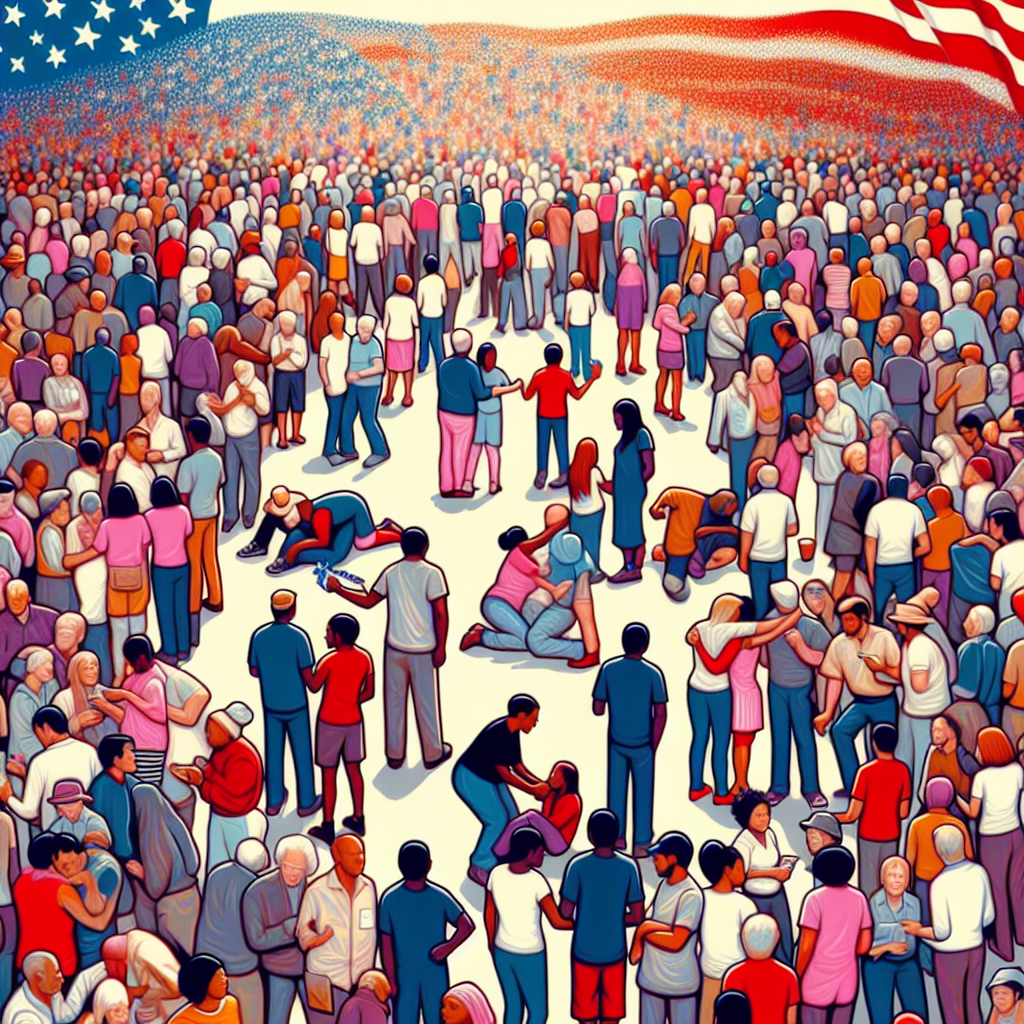The political landscape in the United States is undergoing significant shifts, particularly as the Democratic Party faces challenges concerning voter loyalty and perceptions of warmongering among its leaders. Glenn Greenwald highlights President Donald Trump’s recent speech where he criticized the past foreign policies of George Bush, Dick Cheney, and Barack Obama, rhetorically questioning their outcomes, which he claims resulted in tragic human costs. In contrast, Kamala Harris’s campaign has opted to engage with figures like John Bolton, often deemed one of the most aggressive advocates for military interventions in modern U.S. history, which raises questions about the Democratic Party’s direction and its connections to the military-industrial complex.
This situation is exacerbated by statistical trends indicating a disturbing migration of minority voters away from the Democratic Party, particularly Latino and Black voters, as they increasingly gravitate towards Trump’s platform. Despite ongoing media narratives portraying Trump as a white supremacist, there seems to be a growing recognition among nonwhite voters of the Democratic Party’s failures. Greenwald discusses how this demographic shift has led to campaigns producing desperate tactics – ranging from pandering to accusations of misogyny by Democratic figures like Barack Obama about dissenting voters. This misalignment suggests a broader disconnect between party leadership and the evolving sentiments within these communities.
Among the voices examining this shift is Nick Cruse from the Revolutionary Black Out Network, who articulates a critical perspective on the Democratic Party’s tactics, which he argues often come off as patronizing. Cruse highlights Harris’s attempts to appeal directly to Black men with an agenda that many view as insincere or opportunistic. He also addresses the Democratic Party’s attempts to engage with international issues, such as the situation in Israel and Gaza, suggesting that without genuine moves toward understanding the complexities and nuances involved, such gestures may not resonate effectively with their intended audience.
As public polling and campaign data indicate potential electoral challenges ahead for the Harris campaign, the contrast between Democratic strategies and evolving voter perceptions cannot be overlooked. The media plays a crucial role in shaping narratives around these shifts. Liberal outlets often resort to framing nonwhite voters as misguided or easily swayed, a perspective that echoes broader societal stereotypes rather than acknowledging the legitimate grievances and desires of these populations. This aspect of the political discourse raises concerns about respect and recognition of voter autonomy.
Moreover, there is a suggestion that the Democratic Party is struggling with its identity as it grapples with movements to reconnect with marginalized communities. Analysts argue that rather than listening to the nuanced needs of these groups, the party’s leadership may be highlighting their history of support without fully addressing the mistreatment and disillusionment that has built up over time. This dynamic leads to diminished trust among voters who feel their voices are not being acknowledged in a meaningful way, as demonstrated by changing voting patterns.
In summary, the current political climate is marked by a significant reevaluation of party loyalty, particularly among nonwhite voters who feel increasingly alienated from the Democratic Party. Trump’s critiques of previous administrations resonate with many who question the effectiveness of historical foreign policy decisions, while Kamala Harris’s campaign intensifies struggles for connection with minority communities. This situation compels consultants and commentators alike to reassess the tactics employed by political campaigns, demanding a shift towards genuine engagement over typical political rhetoric. As discussions unfold, the implications of this evolving discourse present critical questions for the future of political strategies in forthcoming elections.

